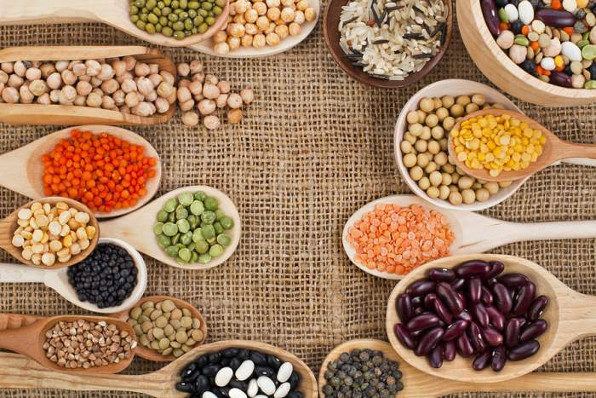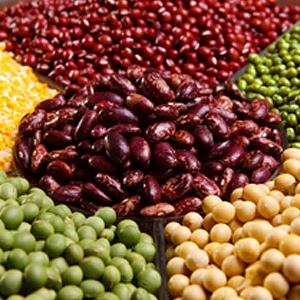It was bound to happen, sooner or later, and I guess it’s only logical that it would happen in California first. After all, the state is considered by may to be the most food-forward in the union. Now, one state assembly representative is calling for official recognition of the value and wisdom of veganism…
 Beans, Peas and Lentils: The backbone of our future food supply?
Beans, Peas and Lentils: The backbone of our future food supply?
Rep. Ash Kalra (D – San José) has introduced resolution ACR-279, designed to give official recognition to the fact that that there’s a world food crisis looming and that veganism, or at least vegetarianism, is the way to go to ensure that we all get enough to eat in the future.
The preamble…
The resolution starts off by noting that, “The State of California has taken significant steps to establish policies and programs to preserve and protect its environment, combat climate change, provide for the health and well-being of all people, and show compassion to and support the humane treatment of animals.”
Then, it reminds us that, “The current world population is 7.6 billion people, and is projected to grow by 1.1 percent a year, with estimates reaching 8.6 billion people in 2030 and 9.8 billion by 2050,” and we’ll all need something nutritious to eat.
Touting the state’s role as a leader: “California continues to lead the nation in adopting practices and policies to protect and preserve the environment and natural resources, and as the world’s population continues to grow, California should continue to demonstrate how the world’s population can reduce its impact on the environment.”
And focusing in on the key issue: “A growing amount of research has demonstrated the health, environmental, and humane benefits of a plant-based diet.” And: “Increased plant-based food production helps improve the world’s ability to meet future food supply demands.”
The big ask…
“Be it resolved: That making plant-based foods the emphasis of one’s diet has been proven to have a positive impact on the environment, individual health, and society as a whole, and all Californians are encouraged to include more plant-based foods in their diet.”
The impact…
The resolution is not a law, which means it’s not mandatory for Californians to start eating more veggies and veggie proteins. But it is a traditional way that governments at all levels officially show what they approve of.
In a broader sense, it’s also a sensible position for food-forward Cali to take and an opportunity (as the resolution itself says) to assert California’s leadership in promoting healthy eating and protection of the environment.
Rep. Kalra is right, that we’ll have to feed almost 10 billion people a year, around the world, if the population keeps growing at the rate is today. And many scientific voices have already suggested that the only way to ensure that we all have enough to eat then is to turn to vegetable-source proteins, and away from animal-based ones.
My take…
While ACR-279 is just a statement of principles, it is the beginning of a trend toward government involvement in our personal habits, specifically in directing our preferences in what we eat. As 2050 approaches, will governments start outlawing certain foods and mandating others in order to force us to abandon animal-source proteins?
I, for one, have no problem with vegetable-based proteins. I love Rice and Beans, and Lentils, and Quinoa. But I don’t make them as much as I’d like to, cooking for others in the household as well as myself. And I will admit, I’ve been tempted to pass my own resolution, at the family level, that we should eat less animal-based protein, simply because of the crazy-high prices the producers and supermarkets are demanding for it, these days.
But I just don’t know if I’m prepared to have my food choices legislated.
Hopefully, it won’t come to that. Alternative protein producers are popping up all over the map, creating vegetable-based foods that mimic the flavour, texture and appearance of meat, and some practitioners of this dark art have become very adept at it. And, as I’ve already noted, conventional meat producers are already pricing themselves out of the market. My take is, we’ll all be relying heavily on vegetable-based proteins long before 2050 anyway. And I think the hardest part will be getting used to the reality that foods that, while currently novelties in most of our diets, will soon be taking centre stage on our plates.
~ Maggie J.

